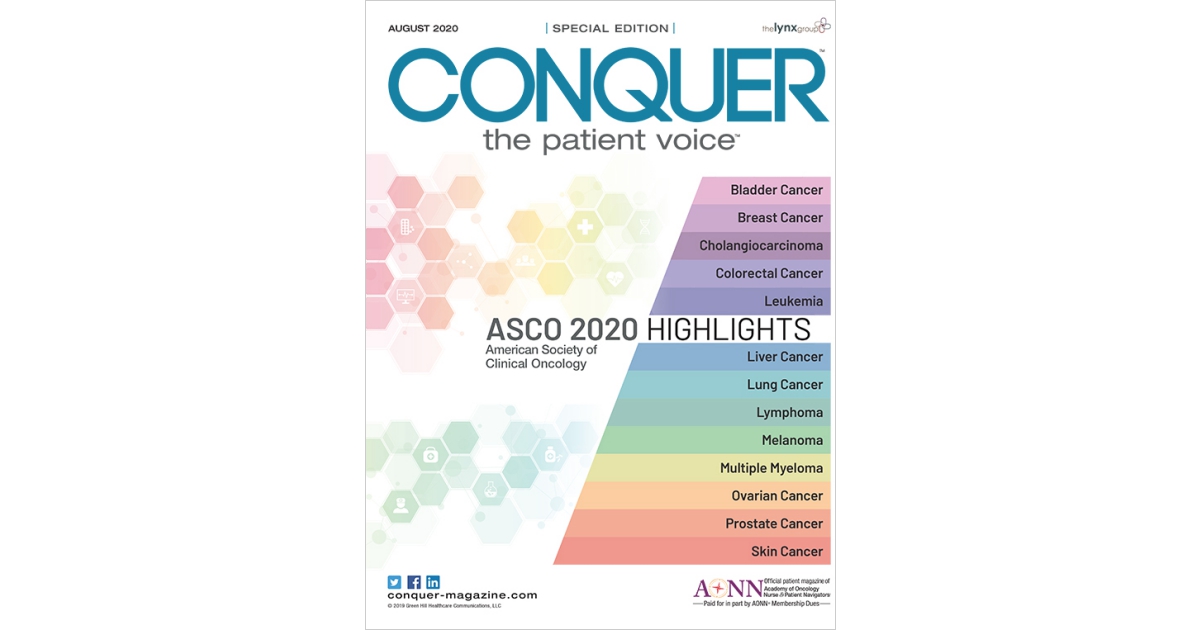ASCO 2020 Highlights

By Chase Doyle
Induction treatment with endocrine and targeted therapies has significantly improved survival for patients with hormone receptor (HR)-positive advanced breast cancer, but over time almost all patients stop responding to therapy. Read More ›
Genomic alterations (mutations) characteristic of intrahepatic cholangiocarcinoma (CCA) are well-known. In this study, Jeffrey S. Ross, MD, Medical Director, Foundation Medicine, Cambridge, Massachusetts, and colleagues examined whether genomic alterations in intrahepatic CCA of a primary tumor would differ from those found in tissue from a tumor that has metastasized (spread) to other parts of the body and the alterations that are found with liquid biopsy (a test done using a blood sample). Read More ›
The feasibility of IDH1 mutation detection in plasma circulating tumor-cell DNA from patients with intrahepatic cholangiocarcinoma (CCA) was demonstrated. Read More ›
The combination of the PD-1 inhibitor Opdivo (nivolumab) and the CTLA-4 inhibitor Yervoy (ipilimumab) has been effective therapy for some types of solid tumor cancers, such as melanoma and lung cancer. Read More ›
Preliminary results were presented from this phase 2 clinical trial by Lipika Goyal, MD, MPhil, Medical Oncologist, Tucker Gosnell Center for Gastrointestinal Cancers, Massachusetts General Hospital, Boston, at the 2020 ASCO annual meeting. Read More ›
In a phase 2 clinical trial, 2 different combinations were studied and compared for use as the first treatments given to patients with cholangiocarcinoma (CCA). Read More ›
Genetic alterations in the FGFR pathway are emerging as promising therapeutic targets in patients with cholangiocarcinoma (CCA). A retrospective chart review (or a medical record review) was performed in patients with CCA who were found to have an FGFR mutation during molecular profiling of the tumor as part of routine care for CCA. Read More ›
By Chase Doyle
New study results presented at the 2020 ASCO annual meeting suggest that there is a new standard of care for the first-line treatment of some patients with advanced colorectal cancer. This was the first study to compare the use of Keytruda (pembrolizumab), a PD-1 inhibitor, versus chemotherapy to see which is the best first treatment for patients with metastatic (spreading) colorectal cancer and microsatellite instability-high (MSI-H) or mismatch repair-deficient (dMMR) abnormalities. Read More ›
By Wayne Kuznar
The use of first-line immunotherapy combination with Opdivo (nivolumab) and low-dose Yervoy (ipilimumab) continues to show robust, long-term benefit in patients with microsatellite instability high (MSI-H) or with mismatch repair-deficient (dMMR) metastatic (spreading) colorectal cancer, according to new study results presented at the 2020 ASCO annual meeting. Read More ›
By Chase Doyle
The targeted therapy Calquence (acalabrutinib), a Bruton tyrosine kinase (or BTK) inhibitor, which is approved by the FDA for the treatment of patients with non-Hodgkin lymphoma has now demonstrated long-term remissions as first-line treatment of patients with chronic lymphocytic leukemia (CLL), according to data presented at the 2020 ASCO annual meeting. Read More ›














